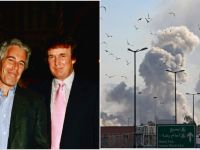Gulf Film Festival presents a taste of Arab cinema in Sweden

Fifteen films from the UAE, Saudi Arabia, Bahrain, Oman, Qatar, Kuwait, Yemen and Iraq will be screened at the Malmo Arab Film Festival, Sweden’s prime Arab film festival, from September 23 to 27, 2011.
The films, which include shorts, features and documentaries, are part of a special showcase presented by the Dubai-based Gulf Film Festival (GFF), the home of bold, contemporary and innovative cinema from the Arabian peninsula. All the films have screened in previous editions of GFF.
The Malmo festival, based in Sweden’s third-largest city, is organized by the Arabian Scandinavian Cultural Centre (FADO), which works to promote dialogue and improve relationships between the Arab and Scandinavian cultures through initiatives in literature, education and the arts; and to support and engage Arab expatriate youth in Sweden.
Three award-winning films will also compete for honors at Malmo: Emirati director Khalid Al Mahmood’s Sabeel, the story of two young boys in Ras Al Khaimah tending and selling vegetables to help their ailing grandmother; Hamama, Nujoom Al Ghanem’s documentary about a 90-year-old female healer and living legend from Al Dhaid; and Iraqi filmmaker Koutaiba Al-Janabi’s Leaving Baghdad, a road movie that follows the personal cameraman to Saddam Hussein.
Other UAE films in the GFF showcase include: Ali Mostafa’s feature film City of Life, which depicts the parallel worlds that exist simultaneously in Dubai; Moath Bin Hafez’s Constructing Dreams, a documentary on construction workers and the momentary joys in their otherwise routine lives; director Naser Al Yaqoobi’s Mountain Sheik, which narrates the story of UAE men and their resolution; Elham Sharaf and Hind Al Hammadi’s Finding Mr. & Mrs. Right: Dubai Style, in which Dubai’s new generation talks about the search for their perfect match; and Jamal Salim’s Slow Death, the story of an expatriate grave digger determined to be buried in his adopted home.
Saudi Arabia is represented by Faisal Al-Otaibi’s The Fort, a documentary that explores the happenings inside the “Great Fort,” and Abdullah Al-Eyaf’s Aayesh, which depicts how in the most unpredictable of times, Aayesh holds himself together and relies on his faith.
From Bahrain, Mohammed Jassim’s The Power of Generations shines a light on the developments that the region has witnessed from the beginning of time; and Omani filmmaker Amer Alrawas’ Spices tells the stories of four individuals at the same moment in time - a barren woman looking for a solution; a 90-year old man waiting for something to happen; a child preparing to change the inevitable; and a blogger.
From Qatar, Faisal Al-Thani’s Demi-Plie depicts the story of a young Arab girl who fights against cultural barriers and family expectations to pursue her dreams of becoming a dancer; Kuwaiti filmmaker Abdullah Boushahri Heaven’s Water narrates the story of a peddler who gets involved with a pregnant girl looking for a way out; and Yemeni filmmaker Khadija Al Salami’s Destructive Beast, a hard-hitting take on how corruption affects the Yemeni people.
Mouhamad Keblawi, Palestinian filmmaker and Director of Malmo Arab Film Festival, said: “Having started out 10 years ago as a festival dedicated to celebrating Arab cinema, the Malmo Arab Film Festival has witnessed remarkable involvement of talent, underling the evolution of a vibrant Arab film industry. We are pleased to celebrate an eclectic array of feature, documentary, and short films that embody the spirit of creativity.”
“It is a true honour to partner with the Gulf Film Festival, the home of bold Arab cinema, that provides a platform for originality and spontaneity, which is in line with the mandate of the Malmo Arab Film Festival,” Keblawi added.
Masoud Amralla Al Ali, Festival Director, Gulf Film Festival, said: “Sweden’s Malmo Arab Film Festival showcases some of the finest Arab films in the world, and is a wonderful opportunity for emerging and established talents to access an entirely new audience. Each of these films has the power to change cultural misconceptions and popular stereotypes by revealing the reality of the modern Arab world.”
Salah Sermini, Consultant to the Gulf Film Festival and co-coordinator of the GFF showcase at Malmo, said: “The large showcase of films from the Gulf Film Festival – accounting for nearly a third of the Malmo lineup – highlights the credibility, prestige and high regard for GFF in Arab film circles.”
In addition to the GFF showcase, the Malmo Arab Film Festival is screening 24 feature films, documentaries and shorts as part of its competition; it will also host seminars on Arab women and cinema; the Arab Spring; the development of Gulf cinema; and liberty and Arab film.
The annual Gulf Film Festival is supported by Dubai Culture & Arts Authority and is held in association with Dubai Studio City. The fourth Gulf Film Festival was held in April 2011 at Dubai Festival City. Sabeel, for the Emirati director Khalid Al Mahmood
Background Information
TECOM Investments
TECOM Group, (formerly known as TECOM Investments) a member of Dubai Holding, is a strategic business enabler that contributes to the realisation of Dubai’s economic aspirations, through the creation of sector-focused business communities and work environments that provide innovative ecosystems.
TECOM Group’s Business Communities reinforce Dubai’s position as a global hub for business and commerce. Covering six vibrant industry sectors, we offer a home in the region to 5,600 companies ranging from start-ups to multinational corporations with a total workforce of 90,000.
The Dubai Culture and Arts Authority
The Dubai Culture & Arts Authority (Dubai Culture) Was Launched on March 8, 2008 by His Highness Sheikh Mohammed Bin Rashid Al Maktoum, Uae Vice President & Prime Minister and Ruler of Dubai. Dubai Culture Plays a Critical Part in Achieving the Vision of the Dubai Strategic Plan 2021 of Establishing the City as Vibrant, Global Arabian Metropolis That Shapes Culture and Arts in the Region and the World.






